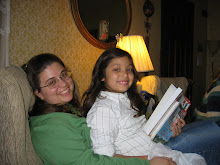Independent Reading Project 5 – Mystery / Crime / Detective novel
Choose a MYSTERY, CRIME, or DETECTIVE novel. This is a work of fiction in which the main character(s), sometimes a detective by trade, is involved in trying to solve a riddle, crime, or mystery. The character(s) is on a search – sometimes for the “truth”, but more often than not, for the perpetrator of a crime. The main action of the novel is focused on turning up clues, following leads, investigating possibilities, and interviewing suspects. As the novel unfolds, the reader is invited to consider the solutions and even possibly solve the mystery before the “detective”. The novel does not end until the mystery, riddle, or crime is solved.
The first “detective” story, “Murders in the Rue Morgue” was written by Edgar Allen Poe in 1841. The first writer of mystery / crime / detective novels was Sir Arthur Conan Doyle, who wrote the Sherlock Holmes books. Popular detective novels for young adult readers include the Nancy Drew series, the Hardy Boys series, The Westing Game, and From the Mixed Up Files of Mrs. Basil E. Frankweiler. There is also a well-written series of mysteries in the National Parks.
Read the novel, and complete one of the projects below by APRIL 26TH. All projects need to be clearly labeled with your name and the title of your book. The project will be worth 100 points, with 10 points off per day late (you may buy one day with a late pass).
BOOK IN A BAG:
1). After reading a book, each student selects a book report container. This container can be a plastic bag, a manila envelope, a can, a shoebox or any other object that can hold items
2) The students decorate the container to convey major details, elements, or themes found in the book.
3). Students will then work on the contents of their container. They will need to include the following:
- Questions-Write ten questions based on the book. Write five “right there” questions and five questions that require some more thought
- Vocabulary-Create a ten word glossary of unfamiliar words from the book.
- Things-Include five things (objects) that have a connection to the story, and a written explanation of each connection.
INTERVIEW WITH THE CHARACTER:
1). The student composes eight questions to ask a main character in the book. The students write the questions and the character’s response to each question. The questions and responses should indicate the student’s knowledge of the story without giving away the most significant details.
2). On the day the assignment is due, the student will either dress up as the main character or use props to depict what the character has an interest in, and will pose as he character for an “interview”.
IN THE NEWS:
1). Each student creates a front cover of a newspaper that tells about events and characters in a book just read. The newspaper must include:
- Title-That is appropriate for the book, but not simply a copy of the title
- Major Story-This is where the student writes a summary.
- Comic Strip-Illustrating an event from the story.
- Editorial-Students write an opinion about the book.
DEAR DIARY:
1). The students will write at least six 100-word-minimum diary or journal entries that might have been written by the main character in the book just read. The entries should share details about the story that will prove the students read the book. (Note: the easiest way to do this is to write the entries as you are reading!)
2). The students will then make a cover for their character’s diary, and include all entries.
